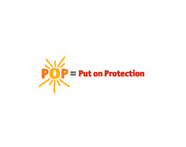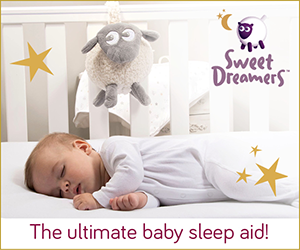POP = Put On Protection

Education on sun safety is an extremely important issue that we all need to be knowledgeable in. Sometimes we believe we are fairly educated in sun safety but there are many misconceptions that need to be raised. First off, a bad sunburn before the age of 10 can give a child up to a 50% chance of getting skin cancer as an adult. Additionally, children acquire 50-80% of their sun exposure before they are 18. Therefore, it is important for parents to not only educate themselves, but to show their children how to be sun safe as well.
We have always been under the impression that slipping a t-shirt over our child would prevent sun damage, however, this fact is misleading. The rays the Sun emits penetrate through regular cotton t-shirts and have a mere 5-10% SPF. This is why UV protective swimwear and active wear makes lives easier and safer with a higher SPF rating. If you are wearing a cotton t-shirt, remember to put sunscreen underneath and reapply. Also, sunscreen has a shelf life, so before traveling check and stock up, hotel sunscreen can be very expensive. Surprisingly, some medications increase the skin’s sensitivity to UV rays. As a result, even kids with skin that does not tend to burn easily can develop severe sun burns in just minutes – ask your doctor.
Remember three letters POP, Put On Protection. Put on a hat, put on sunglasses, put on protective clothing and put on sunscreen.
Sunsmarty Mini Quiz
1. Should babies wear sunscreen?
Yes. Years ago, sunscreen contained PABA, which was not recommended for the babies’ skin; nowadays there are unique products that are orientated toward babies. Just be careful to rub the sunscreen in well, babies have a tendency to rub their eyes and put their hands in their mouths. Doctors suggest that you not apply any sunscreen the first six months.
2. Does a cotton t-shirt protect my child?
No! A 100% cotton t-shirt has as little as 5%UV protection and even less when wet. Keep in mind that the tighter the weave or knit in the fabric the better the protection.
3. Does sunscreen have a shelf life?
Not generally, but most sunscreens have an expiry date. Check the date stamped on the bottle.
4. Can you get sunburn on a cloudy day?
Absolutely. Although a heavily clouded sky does reduce the UV rays, scattered clouds can reflect and even increase their intensity.
5. Can my eyes get sunburned?
Yes, sun exposure damages the eyes as well as the skin. Even one day in the sun can result in a burned cornea (the outermost, clear membrane layer of the eye). Cumulative exposure can lead to cataracts later in life (clouding of the eye lens, which results in blindness). The best way to protect eyes is to wear sunglasses, start your kids early.
6. What are the effects of my Childs medication in the Sun?
Some medications increase the skin’s sensitivity to UV rays. As a result, even kids with skin that tends not to burn easily can develop severe sunburn in just minutes when taking certain medications. Ask your doctor or pharmacist if the prescription (especially antibiotics and acne medications) and over-the-counter medications your child is taking can increase sun sensitivity.
See you on the beach!
Courtesy of www.sunsmarty.com





